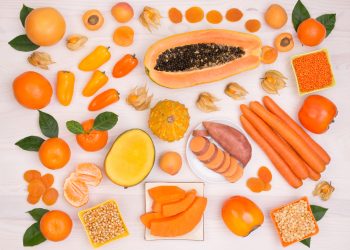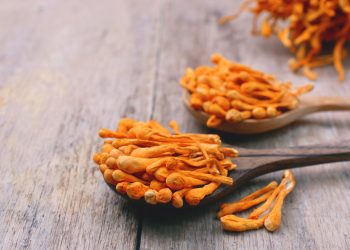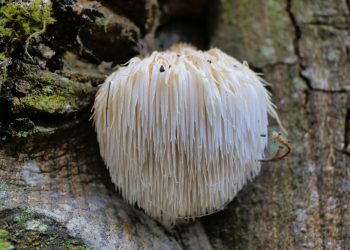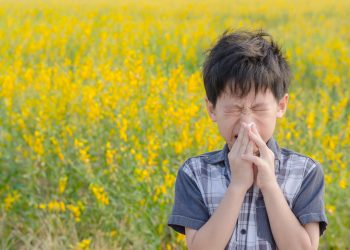Medicinal mushrooms are right up there with organ meats when it comes to the most underrated food groups.
In prior articles we’ve covered the value of said shrooms for men, women, and athletes, but in this one, though, we’ll be delving into how medicinal mushrooms might benefit the most important demographic of all: our children.
The Health Benefits of Mushrooms 101
Mushrooms are among the most potent medicinal foods on the planet. Humanity has used mushrooms since its earliest days. You may have heard of Ötzi the Iceman, a Copper Age man whose remains are over 5,000 years old, but you may not know that Ötzi was found with a medicine kit including Amadou mushrooms! [1]
It was around this same time that China’s “Divine Farmer,” Emperor Yan Di, was compiling the world’s first medical texts. These texts went on to form the basis for traditional Chinese medicine. Can you guess what they espoused? A wide variety of mushrooms, notably reishi/lingzhi. [2]
Reishi continues to be popular to this day. It’s not alone, however — as of 2022 experts have identified over 700 medicinal mushroom species. Thousands of other species are thought to possess similar types of health benefits.
It turns out that these benefits are built into mushrooms’ very cellular structure. The cell walls of mushrooms are made up of a type of fiber called beta-glucans. In a perfect example of nature’s wisdom, beta-glucans are immunologically active. They activate receptors located on several types of immune cells, including CR3, TLR, SIGNR1, LacCer, and more. [3]
This activation leads to a variety of antifungal, antiviral, and anti-inflammatory benefits. Studies have revealed that mushrooms may benefit people with diseases as diverse as cancer, diabetes, and Alzheimer’s. [4]
In addition to their beta-glucans, most medicinal mushrooms are rich in:
- Calcium
- Selenium
- Potassium
- Vitamin D
- Antioxidants
- Ergothioneine
- Polysaccharides
- B vitamins (including niacin and others)
Of all these ingredients, mushrooms’ vitamin D content deserves a special mention. Many mushroom species make vitamin D3 in their skin in response to UV light — just like we humans do! (Some species go a step further and also make D2 and D4.) This capability makes them a boon to children that live in cold areas and don’t get much vitamin D in the winter. More on mushrooms’ child-specific benefits next.
Why Mushrooms Could Be Uniquely Great for Kids
Stronger Immunity
No parent likes to see their child sick or struggling with immune issues.
If your child is getting sick more frequently than you’d like, consider medicinal mushrooms. Their beta-glucans content comes to the rescue yet again — a 2017 review found that b-glucans may prevent upper respiratory tract infections (URTIs) in children. [5]
And these beta-glucans may do much more than that. They’re thought to improve both innate and adaptive immunity, setting the stage for your child to stay healthy throughout flu season.
Which mushrooms are most effective for improving immune health? The highlights include cordyceps, reishi, echinacea, Agaricus, and shiitake:
- Cordyceps may strengthen the kidneys and lungs — both critical to immunity within traditional Chinese medicine’s paradigms.
- Reishi may regulate immunity. That makes it equally capable of empowering a weakened immune system and quieting an overactive one.
- Echinacea may uplift both immunity and mood. Studies call it a “wide-spectrum immunomodulator.” [6]
- Agaricus may stimulate the immune system in times of need, placing an inflammatory burden on harmful viral molecules.
- Shiitake improves immunity, particularly within the gut. It may possess antiviral, antimicrobial, and antifungal properties.
Anecdotal reports also speak to the immune-boosting benefits of mushrooms. Alternative health practitioners report great success giving young patients a blend of five mushrooms:
- Cordyceps Sinensis
- Trametes versicolour
- Lentinula edodes
- Grifola frondosa
- Reishi
Just 4/10th of a gram of this mushroom powder blend may be sufficient to ward off respiratory tract infection. Some practitioners advocate higher dosages if a child is already sick — one case report describes a daily 10-gram blend of cordyceps and reishi as being effective against stubborn chest infections.
Better Focus
Has your child been acting a little bit too hyperactive recently?
If so, you wouldn’t be alone. It’s estimated that up to 5% of British children struggle with ADHD. Countless more may become hyperactive when subjected to a diet filled with high fructose corn syrup, artificial colours and flavours, and all sorts of other additives. [7]
The good news is that medical mushrooms may help. Lion’s Mane mushroom may be especially focus-friendly. Traditional Chinese medicine practitioners say that Lion’s Mane can strengthen a person’s memory, intelligence, and overall mental framework.
This might sound a little far-fetched, but modern research confirms that Lion’s Mane can have profound anti-inflammatory effects on the brain. It may be able to protect your child’s brain from the free radicals that would otherwise muddy things up. It may also be able to stimulate the growth of new brain neurons via various nerve growth factors. While your child is still a long way from the neurodegeneration often seen in old age, why not set them up for success by starting them on neuroprotective mushrooms now? [8]
Improved Nutrient Diversity
The nutritional value of medicinal mushrooms almost can’t be overstated. As we stated earlier, they’re a truly great source of vitamin D.
And that’s just the start of their nutritional benefits. Mushrooms are so nutritionally diverse that they can be used to round out your child’s diet and protect against nutrient deficiencies. A 2021 study found that adding a single 84g serving of mushrooms to one’s daily diet resulted in a: [9]
- 2-3% increase in dietary fiber
- 8-12% increase in potassium
- 12-18% increase in riboflavin
- 11-26% increase in niacin
- 11-23% increase in selenium
- 16–26% increase in copper
- 67-90% increase in vitamin D
- 3.5mg increase in glutathione
- 2.2mg increase in ergothioneine
- 10-16% increase in choline (depending on species consumed)
As if this weren’t impressive enough, keep in mind that these percentages are calculated based on adult RDVs. The same mushroom consumption would increase child RDV percentages even more! It’s clear that mushrooms are a true health food, capable of rounding out some of the most common gaps in our modern diets.
How to Get Your Children to Enjoy Mushrooms
Now for some less-than-good news: not all kids enjoy eating mushrooms. You can probably glean from your own life experience that mushrooms can be an acquired taste. Thankfully, though, it’s usually possible to speed up this acquirement. Below are a few tips to help your children enjoy mushrooms.
- Try out different types of mushrooms. White button mushrooms are one of the best gateways into more diverse mushroom consumption. If your child enjoys this mild-tasting mushroom, feel free to try out shiitake or portobello. You may be able to find more exotic varieties at ethnic grocery stores or farmer’s markets.
- Try out different recipes. Sautéed and chopped-up mushrooms make a delicious addition to salads, meat dishes, side dishes, and pizza. The rich umami flavour of mushrooms means they also go great in soups.
- Get creative with stir-fries. Be sure to fry up your mushroom(s) of choice in a healthy serving of butter, ghee, or olive oil. Cook your chopped mushrooms first, then add other vegetables of your choosing.
* Important side note: Don’t feed your children any wild-harvested mushrooms unless you’re a professionally-trained mycologist. Some wild species are highly poisonous.
If you’ve tried the above methods and still can’t get your children to enjoy the taste of fresh mushrooms, don’t fret. Medicinal mushroom powders confer many of the same benefits and come in a much more neutral format!
All of Hirsch Organic’s mushroom powders are 100% organic, 100% free from glyphosate, and 100% safe for children. [LINK GOES HERE] Our mushroom powders are relatively heat-resistant, which means you can add them to cooked/baked dishes — often without your child even noticing. Their mixability also means you can stir them into juices, smoothies, yogurt parfaits, and more.
Medicinal Mushroom FAQs
Do raw mushrooms contain carbohydrates?
Yes, but they’re good carbs. Most of the carbohydrates present in mushrooms take the form of fiber — and most of this fiber takes the form of the beta-glucans we’ve mentioned earlier.
Are mushrooms a good source of vitamin D?
Yes, most mushroom species are rich in vitamin D3. Some species are also rich in D2 and D4! Shiitake mushrooms are rich in all three types.
Can I give my child mushroom supplements?
You sure can. Even young children can enjoy the benefits of powdered mushroom supplements. Just mix a measured amount of the mushroom powder into your child’s favorite dish or beverage.
Can I give my child wild mushrooms?
We strongly advise against it unless you’re a professionally-trained mycologist. Children should also be taught to never eat wild mushrooms.
Can mushrooms cure my child’s health problems?
There’s no universal answer to this question, and we can’t provide medical advice. Consider working with a mushroom-friendly nutritionist or traditional Chinese medicine practitioner if your child has serious health problems.
The Benefits of Mushrooms for Children: Summing Things Up
“Let thy food be thy medicine and medicine be thy food.”
– Hippocrates (?), ~400 BC
One of the best things about encouraging your children to eat mushrooms has to do with their mindset. Children who eat mushrooms alongside their parents can experientially learn that food and medicine are often one and the same! Introducing your children to the restorative power of mushrooms is a gift that will continue to bless them far into the future. And it just might make your life easier in the meantime, too.









